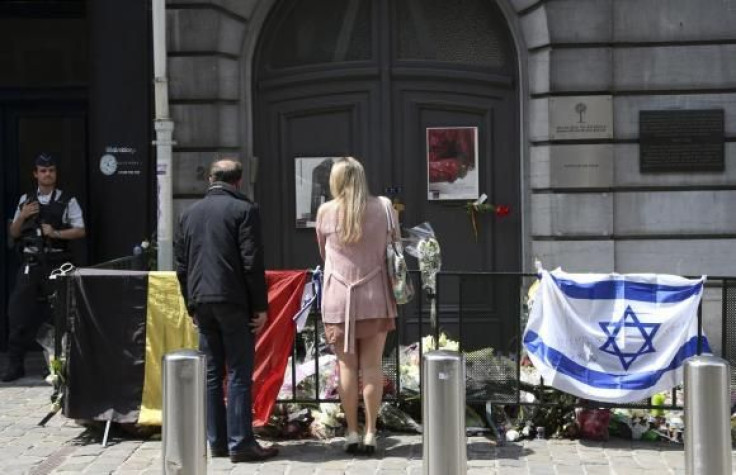Belgium Jews Remain Anxious After Anti-Terrorism Raids, Community Leader Says

A day after two suspects were killed and 13 arrested in anti-terrorism raids in Belgium, the country’s Jewish community remains on edge. Jewish schools across the country were shut down Friday, and police will surround synagogues for Sabbath services on Saturday, the leader of the Belgian Jewish community told International Business Times.
“We are anxious,” Maurice Sosnowski, president of the Belgian Jewish community umbrella group CCOJB, said, adding that the tensions have been fueled by the terror attacks in Paris that killed 17 people, including four hostages inside a kosher supermarket on Jan. 9.
On Friday, Belgian Prime Minister Charles Michel announced that the national alert level had been raised to three on a four-point scale. Sosnowski says the Jewish community has asked for police protection outside the country’s Jewish schools starting Monday, “at least for a short period of time,” Sosnowski said. “Hopefully, the anxiety will drop,” he said.
The community’s fears hark back to last May when a gunman entered the Jewish Museum of Belgium in Brussels. Four people were shot and killed. At the time, a crisis management center was established that offered psychological support and opened lines of communication between the Jewish community and law enforcement. The shooting took place on a Saturday, and Sosnowski credits the crisis center for easing fears. He noted, “Ninety-eight percent of students returned to school on Monday.”
Still, he acknowledges that life for Belgium's 40,000 Jews isn’t easy. The Anti-Defamation League reported eight major anti-Semitic incidents, including the museum shooting, in 2014.
The most recent incident took place in November when a rabbi in Antwerp was stabbed in the throat. He was hospitalized for non-life-threatening injuries. In July, during the Israeli-Gaza conflict, a Belgian doctor reportedly refused to treat a Jewish woman. According to media reports, the doctor said, "Send her to Gaza for a few hours, then she'll get rid of the pain."
“We cannot hide the problems,” Sosnowski said, referring to the rising tide of anti-Semitism that has swept Europe, including Belgium. “In certain areas, it’s difficult for Jews to wear the Star of David or their kippahs [yarmulkes]. They are afraid of being attacked,” he said.
Some Belgian Jews have decided to leave the country for Israel -- a decision highlighted after the Jewish Museum of Belgium shooting in May. According to statistics released by the Jewish Agency, 260 Belgian immigrants moved to Israel in 2014. The year before, there were 240 new immigrants, representing a 46 percent increase from 2012.
For Sosnowski, an individual’s decision to make aliyah, or “ascent,” to Israel is a personal one, but it should not be motivated by fear. “Go for a positive goal, not for a negative one because they are afraid,” he said. “My goal is to keep them in Belgium with security.”
© Copyright IBTimes 2024. All rights reserved.












